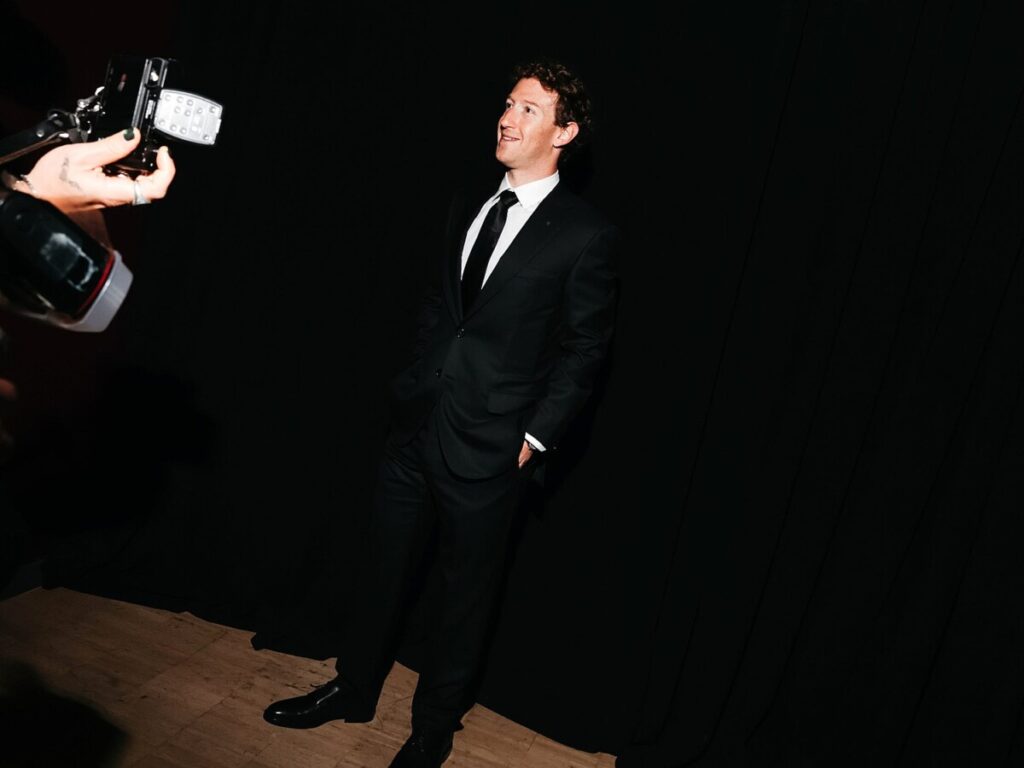Why Reels’ $50 billion business is great for Meta, but not creators
In a striking demonstration of the evolving landscape of the creator economy, Meta’s Reels, launched in 2020 as a direct response to TikTok, has achieved remarkable financial success, projected to generate $50 billion annually in ad revenue. Mark Zuckerberg recently highlighted this achievement during Meta’s Q3 earnings call, underscoring that the platform has become a significant player in the creator economy, despite the fact that it largely relies on user-generated content provided for free. This business model raises critical questions about the distribution of wealth within the creator economy, where platforms like Meta, TikTok, and Snap benefit immensely from creators’ content while offering minimal compensation in return. In contrast, YouTube stands out as an exception, sharing a more equitable portion of ad revenue with its creators.
The creator economy has become a lucrative space, but its benefits appear to skew heavily toward the platforms rather than the creators themselves. While Meta and its competitors thrive on the content produced by users, they often do not provide substantial financial returns to those creators. Instead, platforms typically offer vague promises of exposure, leading creators to seek alternative revenue streams, such as brand partnerships. This dynamic raises concerns about the sustainability of the creator economy for individuals who invest significant time and resources into content creation. Despite ongoing discussions about better revenue-sharing models, creators have yet to unite effectively to demand fairer compensation, leaving platforms like Meta to continue reaping the rewards of their contributions.
Even YouTube, which historically has been the most creator-friendly platform, is tightening its grip on revenue sharing with its new Shorts feature, which offers creators a smaller share of ad revenue. This shift illustrates a broader trend among platforms to prioritize profit margins over fair compensation for creators. As Meta and others continue to thrive on user-generated content, the challenge remains for creators to advocate for better deals. With the current landscape favoring platforms, the question looms: will creators ever successfully organize to demand a fairer share of the revenue generated from their work?
https://www.youtube.com/watch?v=XDK88OQoxzQ
Mark Zuckerberg’s Meta launched Reels as a TikTok response five years ago. Now it’s a $50 billion business.
Lexie Moreland/WWD via Getty Images
Meta
launched Reels in 2020 as a TikTok clone.
It’s worked really well: It’s now on track to do $50 billion a year in ad revenue, says Mark Zuckerberg.
Even better for Meta: It gets all of its content for free, or close to it. So why don’t creators push for something better?
Remember when
Reels was dismissed as Meta’s attempt to clone TikTok
?
Well, now the five-year-old app is on track to generate $50 billion a year. It’s turned into a huge win for Meta, and it has become one of the biggest “creator economy” businesses in the world.
But that number also makes something else clear: The creator economy’s biggest winners aren’t creators. It’s the platforms that depend on them.
That’s because almost every one of those platforms depends on the labor of creators — a shorter way of describing “people who make and/or own content” — but shares very little of the revenue those creators’ stuff generates.
The one major exception is
Google’s YouTube, which is also a $50 billion business
, and which, until recently, shared about half of all the money its videos made with the people who made the videos. Everyone else —Meta, TikTok, Snap — offers a different deal, which goes like this:
Give us your stuff, for free. Maybe we’ll give a small subset of you some kind of bonus from a
”
creator program
”
or something like that. But for the most part, we’ll make money selling ads against your stuff on our platform — and you’ll have to find another way to make money. You’re welcome!
This is not news to people in and around the creator economy (again: you could just say “media business”). But Meta’s boast about its success — made by Mark Zuckerberg last month, during his
Q3 earnings call
— puts it in sharp relief.
It’s hard to build a $50 billion a year business doing anything, anywhere. But a $50 billion business built on other people’s content that you get more or less for free? That’s pretty special.
Even better for Meta and its peers: There’s no sense that any of this is going to change. Every so often, someone will tell me about their plan to make it happen: They’ll convince a bunch of content creators to take their stuff off the non-sharing platforms unless they get a better deal. It never happens.
And Meta and its peers have a pretty good argument for why that doesn’t happen, though they generally don’t say this out loud (I’ve asked Meta for comment). It’s that their massive platforms offer creators the promise of exposure, which they can parlay into businesses they can build on their own.
Sure, maybe Meta isn’t going to give you a meaningful cut of the money it makes selling ads against your videos. But someone
else
may pay you a bunch of money to feature their product in one of your videos. Win, win. And if you don’t like it, go find another huge platform that gives you a better deal. Good luck.
Again, there is one place to get a better deal, which is YouTube. The world’s biggest video site kicked off the creator economy way back in 2007, when it launched its ”
partner program
,” which still exists today. That one gives (most) big YouTube video-makers 55% of any ad dollars attached to their videos. And while
YouTube creators have spent years complaining about that split
, it’s still the best deal in town.
Why haven’t other platforms tried to do the same thing? I ask them all the time. Sometimes they’ll mention that it’s difficult to figure out how to share revenue for videos you swipe past in a vertical feed. But the real answer is that they’ve found they don’t have to — why pay for something you can get for free? The margins are way better.
Even YouTube, the one platform that built real economics for creators, is backing away a bit. Shorts —
its
TikTok clone —
gives creators a smaller cut, and ties payouts to a shared pool of ad money
, not their actual videos. The message is clear: Even the platform that started out sharing the pie would like to keep more of it.
Why not? It works for Meta, and everyone else.
Read the original article on
Business Insider
Eric
Eric is a seasoned journalist covering Business news.



